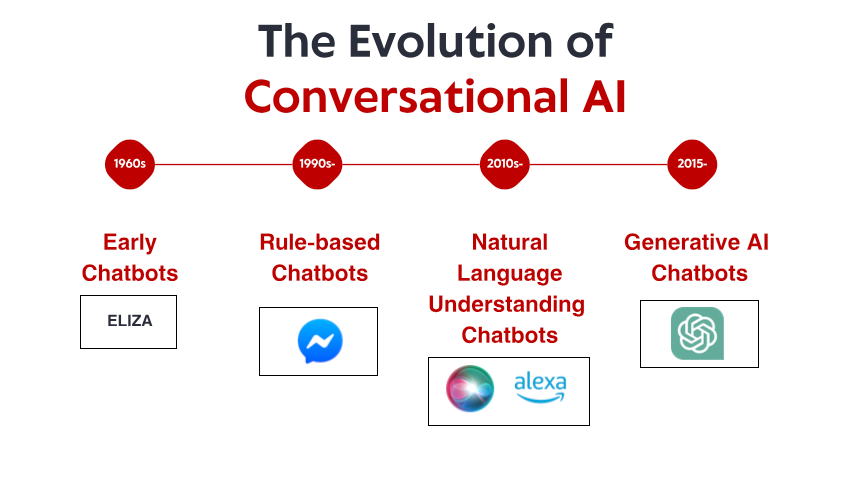Test AI on YOUR Website in 60 Seconds
See how our AI instantly analyzes your website and creates a personalized chatbot - without registration. Just enter your URL and watch it work!
Harnessing AI in Product Management
From gathering insights to automating repetitive tasks, AI has the potential to transform the way products are designed, developed, and delivered. In this blog, we will explore how AI is being used in product management and the key ways it can be harnessed to build better, more customer-centric products.
1. Data-Driven Decision Making
How AI Enhances Data-Driven Decision Making:
Customer Insights: AI tools can analyze vast amounts of customer data (from surveys, feedback, social media, and usage patterns) to identify trends and customer preferences. By segmenting users based on their behaviors, AI can help product managers understand what customers want and predict future needs. This allows for more targeted product features and improvements.
Predictive Analytics: AI can forecast product performance and market trends using historical data and predictive models. For instance, machine learning algorithms can help predict how well a product will perform in different markets or forecast the potential adoption of new features based on past behavior patterns.
A/B Testing Optimization: AI can automate and enhance A/B testing by quickly analyzing test results and determining which versions of a product or feature are most likely to succeed. AI algorithms can even suggest the best variations to test, based on user preferences, trends, and previous data.
Impact:
AI’s ability to process and analyze data at scale helps product managers make more informed, faster decisions that lead to products that better meet customer needs. With actionable insights at their fingertips, teams can avoid guesswork and focus on what truly drives product success.
2. Automating Repetitive Tasks
How AI Automates Repetitive Tasks:
Feature Request Management: AI tools can automatically categorize, prioritize, and assign feature requests based on predefined criteria, such as customer demand or business impact. This eliminates the need for manual tracking and ensures that the most important requests are addressed promptly.
Task Automation: AI-powered project management tools can automatically update progress on tasks, send reminders to team members, and assign resources based on project timelines. These tools can even predict delays and proactively address bottlenecks in the workflow.
Reporting and Dashboards: AI can automatically generate reports and dashboards that provide up-to-date information on product performance, market trends, and customer feedback. This eliminates the need for manual data compilation and allows product managers to monitor metrics in real-time.
Impact:
By automating repetitive tasks, AI helps product managers save time and reduce human error. This allows them to focus on high-value activities like strategy development, creative problem-solving, and team collaboration, leading to better product outcomes.
3. Enhancing Customer Experience and Personalization
How AI Improves Customer Experience:
Personalized Recommendations: AI algorithms, such as collaborative filtering and content-based filtering, analyze user behaviors and preferences to provide personalized product recommendations. For example, an e-commerce platform can suggest products based on previous purchases or browsing history, driving higher conversion rates and customer satisfaction.
Chatbots and Virtual Assistants: AI-powered chatbots and virtual assistants are improving customer support by providing real-time responses to inquiries. These tools can handle routine questions, offer product recommendations, and resolve issues, ensuring a seamless experience for customers while freeing up human agents to handle more complex issues.
Sentiment Analysis: AI tools can perform sentiment analysis on customer feedback, social media posts, and reviews to understand how users feel about a product or feature. This helps product managers detect dissatisfaction early, allowing for quicker responses and better customer retention.
Impact:
AI’s ability to enhance personalization and streamline customer interactions leads to a more engaging and satisfying customer experience. This, in turn, builds stronger customer loyalty, improves product adoption, and increases the likelihood of repeat purchases.
4. Optimizing Product Roadmaps
How AI Optimizes Product Roadmaps:
Prioritization: AI can assist in prioritizing product features by analyzing data from customer feedback, market trends, and competitor products. Machine learning algorithms can predict the potential impact of each feature, helping product managers make data-backed decisions on what to prioritize next.
Resource Allocation: AI-powered tools can analyze past projects and predict the resources needed to complete tasks efficiently. This helps product managers optimize team allocation, manage workloads, and avoid resource shortages during development cycles.
Market Trend Analysis: AI can continuously monitor and analyze market conditions, identifying emerging trends, new technologies, and competitive threats. This allows product managers to adjust their roadmaps in real-time, ensuring that their products stay ahead of the curve.
Impact:
AI-driven insights make it easier for product managers to make strategic decisions about the direction of a product. By streamlining the prioritization process and aligning resources with market needs, product teams can deliver products that resonate with customers and deliver greater business value.
Test AI on YOUR Website in 60 Seconds
See how our AI instantly analyzes your website and creates a personalized chatbot - without registration. Just enter your URL and watch it work!
5. Improving Collaboration Across Teams
How AI Enhances Team Collaboration:
AI-powered Collaboration Tools: AI can optimize communication and project management tools, helping teams collaborate in real-time. For example, AI can automatically update task statuses, assign tasks based on team members’ strengths, and flag potential issues or delays.
Cross-functional Coordination: AI can track project milestones and provide actionable insights across teams. This helps product managers coordinate with designers and engineers to ensure timely delivery of features while keeping marketing and sales teams informed about product updates.
Real-Time Collaboration Feedback: AI-powered collaboration platforms allow team members to provide real-time feedback on designs, prototypes, and product features. This helps ensure that all stakeholders have input, leading to more aligned and efficient product development.
Impact:
AI streamlines the product development process by improving communication and coordination among different teams. By fostering collaboration, product managers can ensure that everyone works toward a common goal and that products are developed faster and more effectively.
6. Risk Mitigation and Decision Support
How AI Helps with Risk Mitigation:
Risk Analysis: AI tools can evaluate the potential risks associated with a product, such as market saturation, resource constraints, or regulatory issues. By analyzing historical data, AI can predict which risks are most likely to impact a product and help product managers take proactive steps to address them.
Scenario Planning: AI can simulate various “what-if” scenarios, helping product managers explore different outcomes based on changing variables, such as pricing adjustments or changes in customer behavior. This enables more informed decision-making and better contingency planning.
Impact:
AI helps reduce uncertainty in the product management process by providing valuable insights that help identify and mitigate risks. By proactively addressing potential challenges, product managers can minimize product failures and optimize the chances of success.
Conclusion: Building Better Products with AI
As AI technology continues to evolve, its role in product management will only expand. Product managers who embrace AI tools will have a significant advantage in creating products that are not only successful but also deeply aligned with market demands and customer expectations. The future of product management is AI-powered—by leveraging these tools, companies can build better products and stay ahead of the competition.






